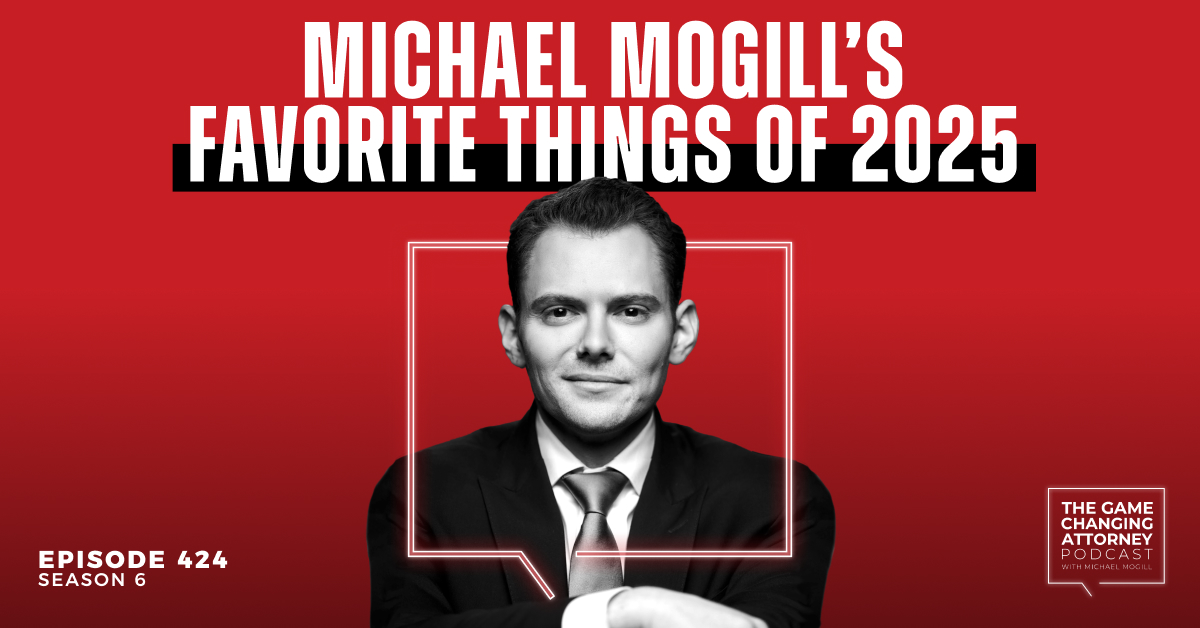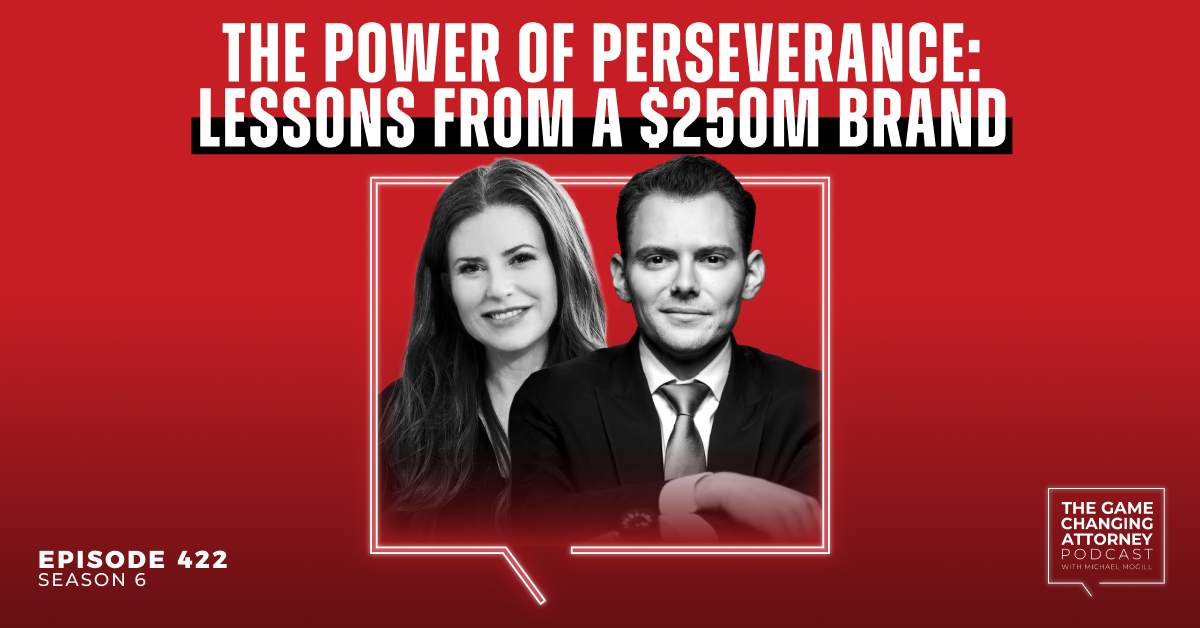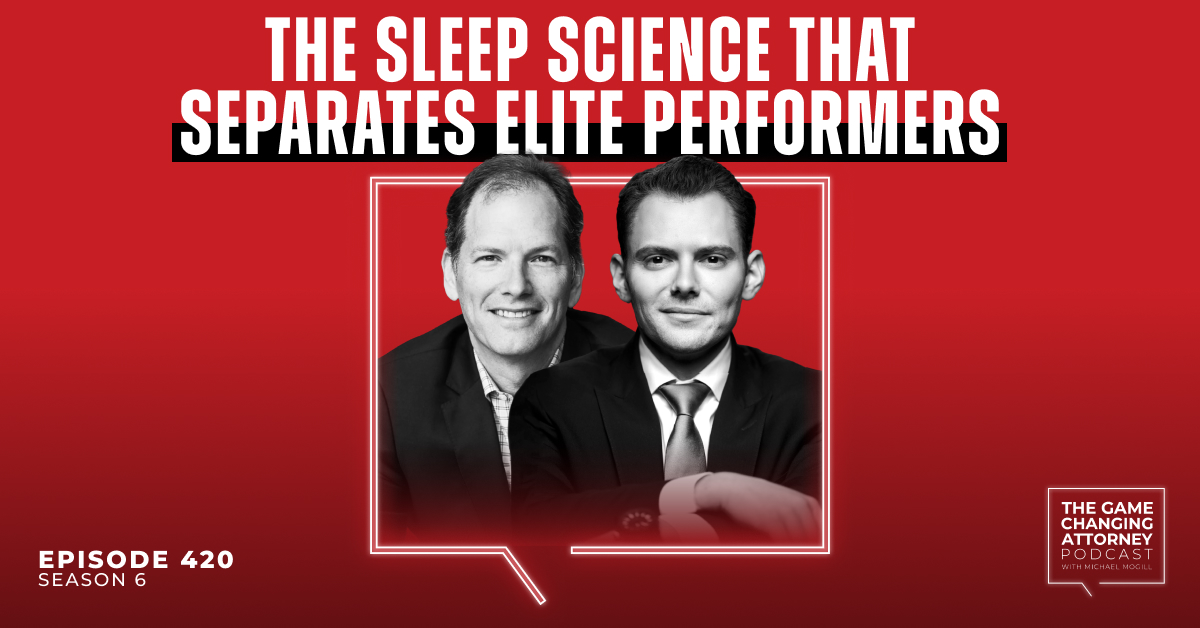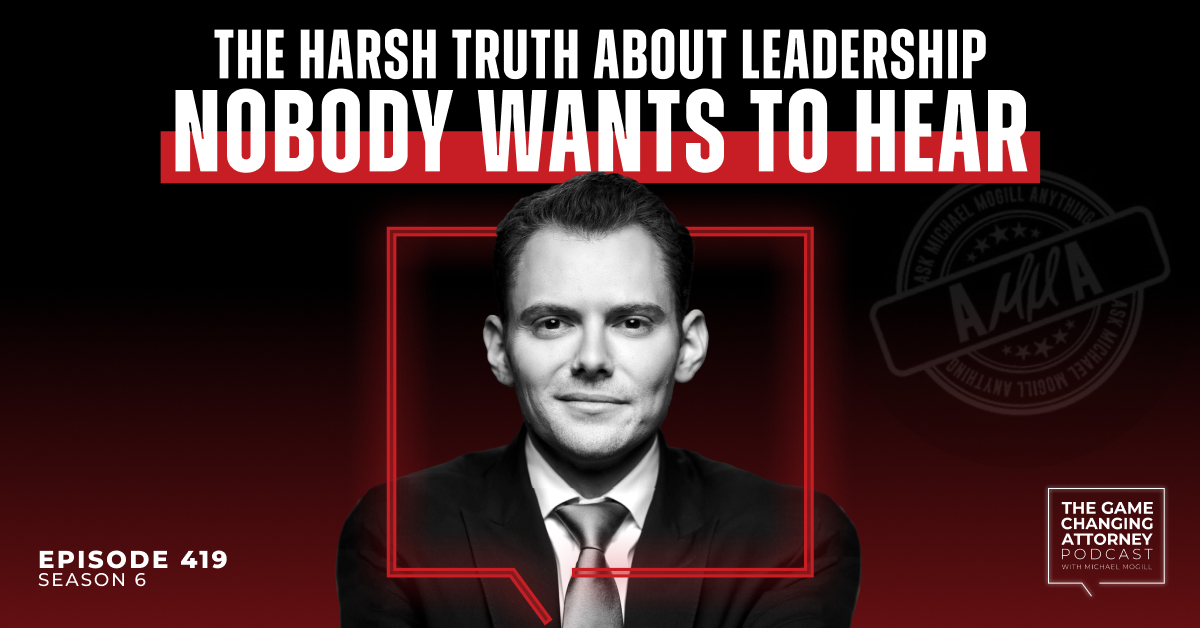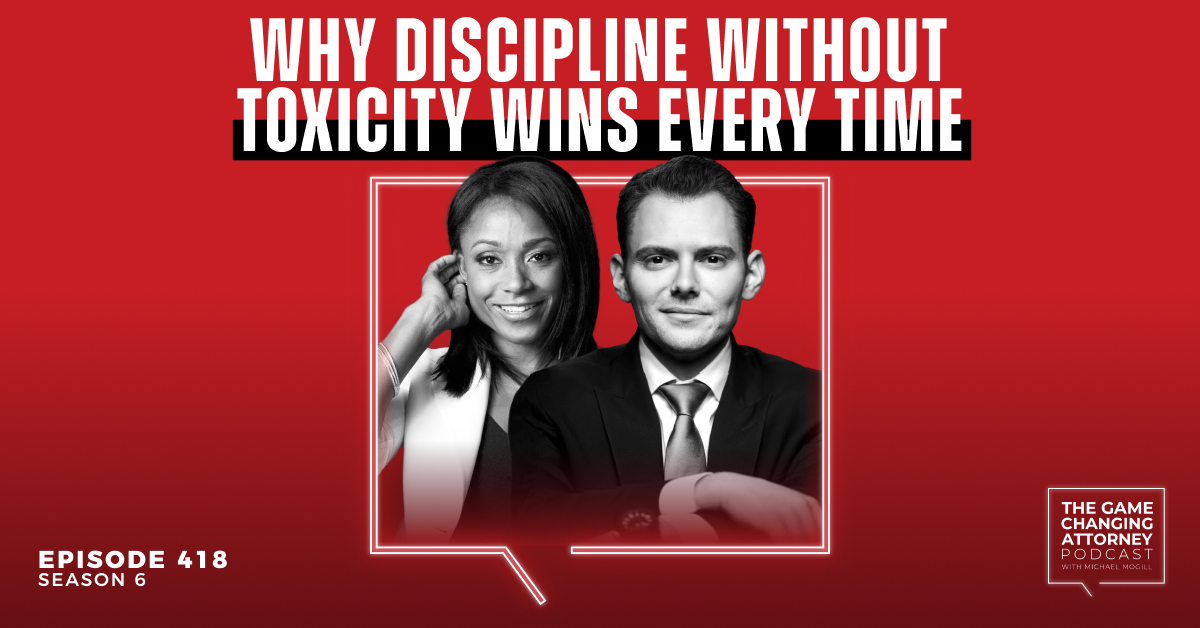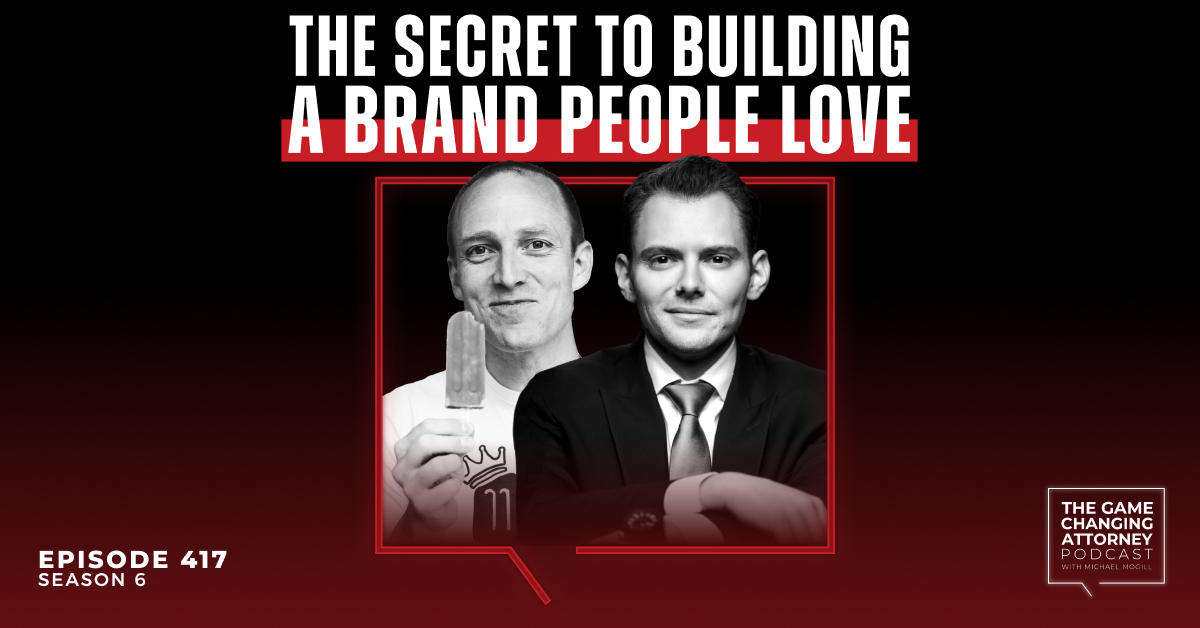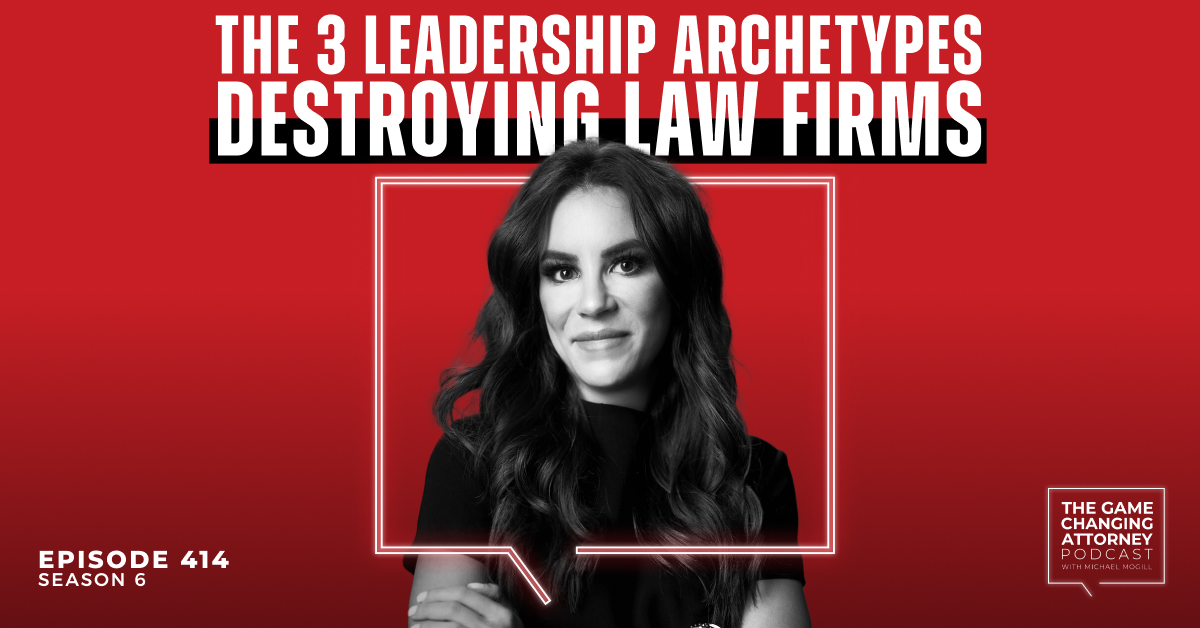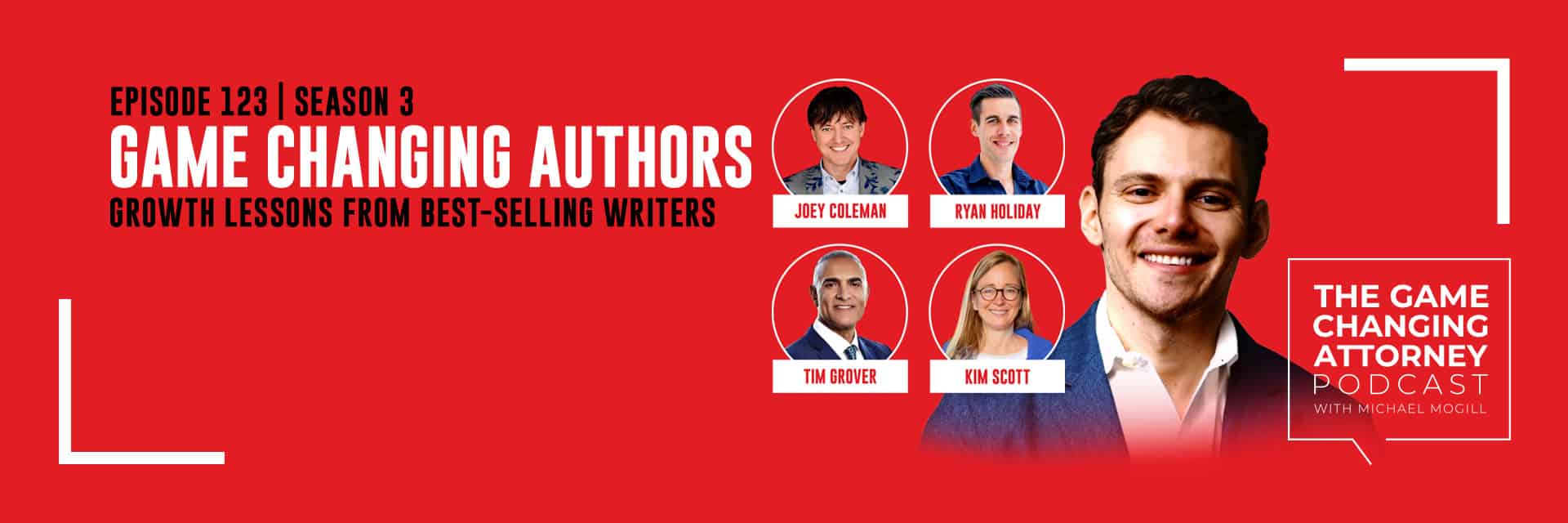
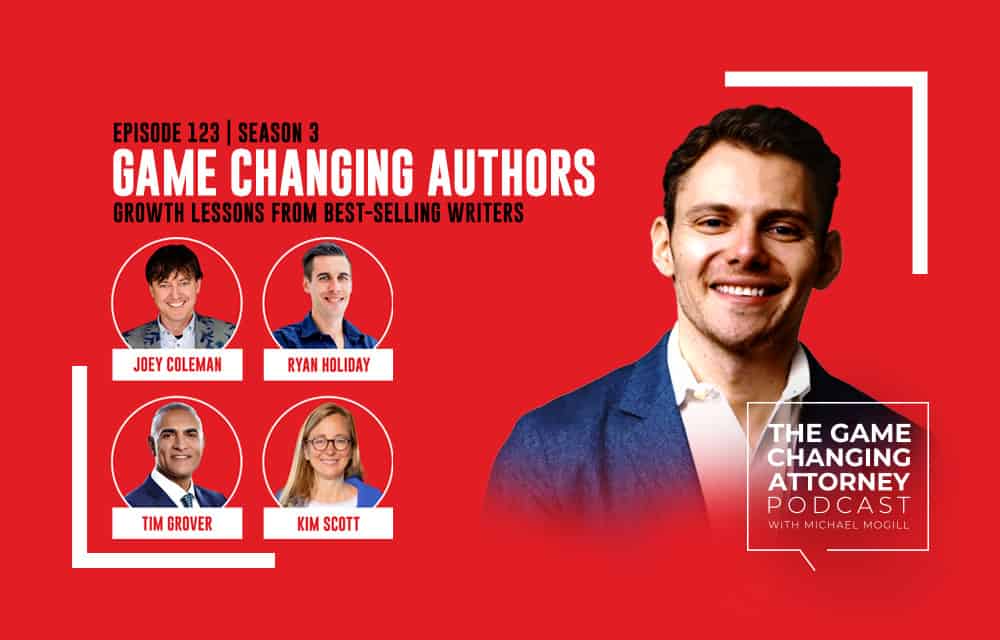
Episode 123 — Game Changing Authors: Lessons from Best-Selling Writers
Great books open many doors. They help us better understand the world around us, become more evolved people, and can even send us to new places.
That’s why in this episode of The Game Changing Attorney Podcast, we wanted to celebrate the incredible authors who have made all those things possible for game changing attorneys everywhere.
Get ready to hear insights from four best-selling authors who have appeared on the show:
- Joey Coleman: author of Never Lose a Customer Again: Turn Any Sale into Lifelong Loyalty in 100 Days
- Ryan Holiday: author of The Obstacle is the Way
- Tim Grover: author of W1NNING: The Unforgiving Race to Greatness
- Kim Scott: author of Radical Candor
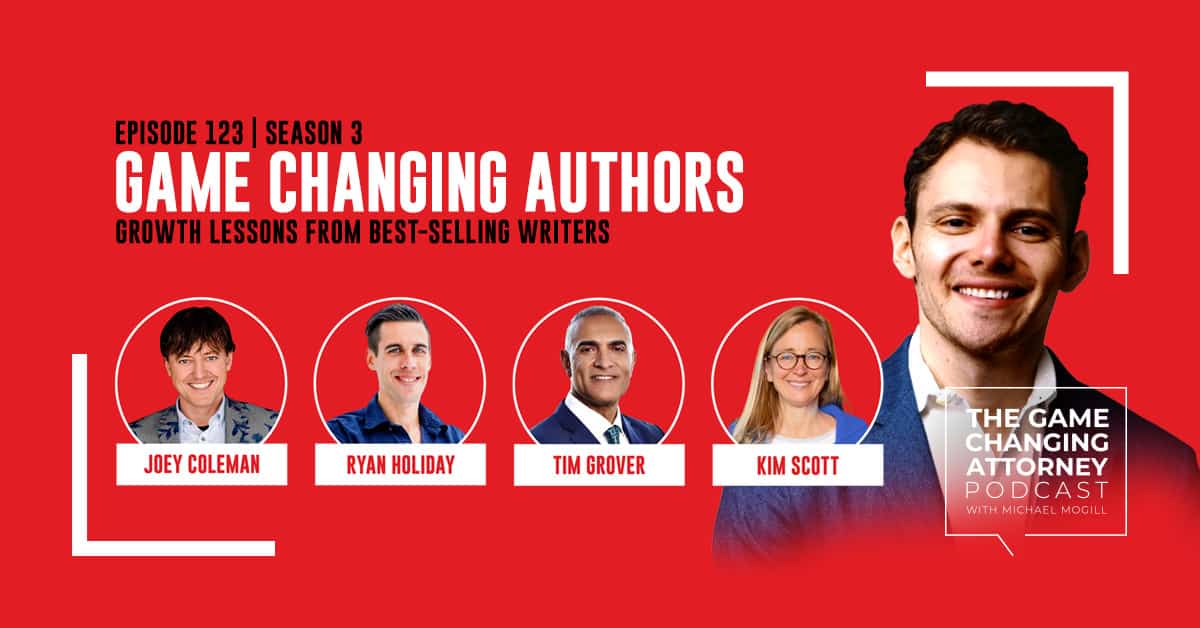
Listen & Subscribe
Show Notes:
Joey Coleman
A man of many talents. “I grew up the son of a criminal defense lawyer, so my first time at a counsel’s table, I was in sixth grade when I was a federal court courier and an antitrust at a case that my dad was trying. I grew up basically in that environment. I went straight from college to law school. After law school, I was a criminal defense lawyer for a while, was a business consultant, went back to being a criminal defense lawyer, and then worked selling promotional products. I was a teacher at the postgraduate level. I started and ran an ad agency. I had my stint, as you mentioned, with the Secret Service, with the White House and with the CIA. Some amazing experiences, but the thread that ties all of these together — some people look at that and they’re like, ‘Jesus, this guy can’t hold the job,’ but there’s actually a method to the madness, and that is in each of those positions, the way that you succeeded was by having a keen understanding of the human condition.”
A common thread. “In each of these positions, what I learned was even though they’re completely different industries, completely different worlds with completely different desired outcomes, there’s one common thread. The common thread is humans, and really what it allowed me to do is take the learnings from all of those and combine them into this discussion of customer experience and employee experience. You know, what are your customers doing, what are your employees doing, what would you like them to be doing, and how can we use different tools and techniques to increase the likelihood that our desired outcome actually happens?”
Why you must retain clients. “Number one, we need to recoup our marketing costs. If we don’t keep a client long enough to recoup our marketing costs, we’re in the hole for that client. Number two, the longer we keep a client, the more profitable that client becomes. Why? Well, because we recouped all of the onboarding cost in addition to the marketing costs, and as our team, whether that’s our associates or partners or paralegals or support staff, as they work more and more with a client, they become more efficient in dealing with that client’s matters. So as a result, each additional hour they bill is a more profitable hour than the previous ones billed because we’re already up to speed on the project, even though in most firms there isn’t a sliding scale that says, ‘Hey, the longer you’ve worked with us, the less you pay.’ That’s not usually the way it works. So the moral of the story is, if we can stretch a client for one more engagement or one more referral, the incremental impact on the bottom line of our business is incredible.”
Referrals are indispensable. “Not only do referrals come in at a much lower cost in terms of a regular marketing engagement to get a client, but as a general rule, if you treat your clients well and you teach them how to make qualified referrals, the referrals that come in are pre-framed. The sales process is exponentially easier because they already know what to expect, they already know generally what it’s going to cost them, and again, the profitability per client increases, not to mention the word of mouth.”
Ryan Holiday
What is Stoicism? “We tend to think of philosophy as this sort of abstract, theoretical thing — and it can be that. But it’s also meant to be applied. It’s meant to meet the rubber of the road of real life. It’s probably not a coincidence that a big chunk of the Stoics in ancient Rome were lawyers in some capacity or another. But the idea of Stoicism as a philosophy is basically rooted around this idea that we don’t control what happens. We control how we respond. What I love about the Stoics and why I think they remain relevant today is that the Stoics weren’t necessarily known for their brilliant writing or their beautiful writing. They were known for what they actually did in real life.”
Stoicism is not about removing all emotions; it’s about removing destructive emotions. “People think that Stoicism is the absence of emotions, because that’s sort of what the word means in the English language. I think what the Stoics are really focused on is destructive emotions. Does this emotion make it better or worse? Does holding on to this emotion longer than I ought to make it better or worse? That’s really what we’re thinking about. ‘This is unfair. I’ve been screwed over. This is not my fault. Why me? I’m never going to recover.’ You know, those sorts of things. They may well be true, but are they moving the ball forward in any way?”
After controlling your perspective, take action. “Mindset is key. Perception is key. But we’re not talking about The Secret key or manifestation. You have to take action. Perception tees up action, because by focusing on what’s in your control, by focusing on what’s positive, by focusing on your response, you now have a direction to go in. But if you don’t go in that direction, all you’re doing is playing around in your mind. You’re not changing anything. So yes, for the Stoics it’s about action.”
Willpower is about endurance. “Will is harder because it’s just about putting up with stuff. It’s just about enduring. It’s just about hanging on. It’s about that really difficult thing of acceptance. I define will as that sort of inner soul power that we have that allows us to say, ‘This thing was supposed to take two weeks and here we are 12 months later.’ I think, you know, willpower is the swing vote there.”
Tim Grover
Don’t take the easy way out. “Not everybody has this intensity. Not everybody has this desire to be the best. Not everybody has this desire to compete to win. We’re in a place now where people are so worried about stepping on people’s toes, yet winning requires you to step on their throats by your results. For a lot of people, that’s harsh. If you have the mentality of a winner and can actually execute on it, you separate yourself from the pack. You get exposed to not being in the middle, the decisions you make, the things you say, and once people start pulling away from the pack and realize how little protection or support they have, it might be too much for them, so it’s easy to go back into the pack.”
Winning is about elevation, not motivation. “Winning is hard. Everybody’s looking for that easy path. That’s why there are so many individuals out there who sell motivation because that means you’re going to keep buying. I don’t sell motivation…I sell elevation. The big difference between the two: Elevation is internal and motivation is external. Nobody can ever take your elevated mindset away. They can take your motivation away because you got it through somebody else, but nobody can take away what you earned on your own.”
Difficult decisions. “I was packing to travel for work when my daughter walked in and asked why I traveled for work so much. I told her it’s because this is how I can take care of her and her mother. That’s when she said, ‘Dad, if I eat less, will you stay home more?’ If this were a Hollywood ending, I would have unpacked my bag, stayed with my daughter, and taken her out for ice cream — but I kept packing. Those are the decisions that winning requires you to make. Anybody can make the easy ones, but that’s why not everyone wins. Those are the decisions that winning is going to test you with.”
You can win every day. “Kobe Bryant said winning is everything. We have opportunities to win every single day, but a lot of us can’t even see them. You have to go get them first, and it’s a feeling that you just can’t describe. It may not be in the sports industry, but how about being your own cheerleader and putting that same effort into something that’s that important? I have no problem with an individual who did everything they possibly could and failed. I have a problem with the individual who didn’t.”
Kim Scott
The origin of Radical Candor. “Fundamentally, the reason why I wrote the book stems from an early management experience I had. I came into the office — a small software company of about 65 people — and about 10 people had sent me the same article. You know when 10 people send you the same article, you better stop what you’re doing and read it. The article was about how people would rather have a boss who is a real a**hole but very competent than one who’s really nice but incompetent. And I thought, ‘Gosh, are they sending me this because they think I’m a jerk or because they think I’m incompetent? Surely those are not my two choices.’ I think for an awful lot of people there is this false dichotomy that you’re either super successful and a bad human being, or you’re a really good human being and kind of a pushover. That is a false dichotomy. So, I think a lot of my management career has been about breaking free of that false dichotomy, and certainly writing Radical Candor is about breaking free of that false dichotomy.”
What is radical candor? “Radical candor means the ability to care personally about someone, but at the same time that you challenge them directly. To me, that’s the essence of being a good boss. It is really the essence of having a good relationship, period. But, in particular, it’s important when you’re the boss because it’s your job to tell people when things are going really well, but it’s also your job to tell them when things are not going so well — and you always want to do both things in a way that shows that you care about the person.”
Candor versus truth. “It’s important to remember that praise needs to be specific and sincere, and criticism needs to be kind and clear. You want to go into those conversations in the right mindset, so you want to make sure that you’re being humble about what you’re saying. The reason I call it ‘candor’ and not ‘truth’ is to me at least candor says, ‘Here’s what I see. I’m curious to know what you see,’ whereas if I say I’m going to tell you the truth, I’m sort of implying that I have the objective reality and whatever you think doesn’t matter. So it’s not that I’m opposed to truth, but candor to me feels more humble. You want to state your intention to be helpful. You want to do it right away.”
Gauging the feedback. “There’s an even more important thing than what you say, and that is paying attention to how it lands for the other person. I call this ‘gauging the feedback.’ You want to make sure that you understand how the other person is interpreting what you’re saying, because you may be saying one thing and odds are they’re hearing something entirely different. Feedback is measured not at your mouth but at the other person’s ear.”
RESOURCES & REFERENCES
Never Lose a Customer Again by Joey Coleman
The Obstacle is the Way by Ryan Holiday
Stoicism
Ancient Rome
The Secret
Radical Candor by Kim Scott
American Idol
Sheryl Sandberg
W1NNING by Tim Grover
Kobe Bryant
Connect with Michael
- Text directly at 404-531-7691
